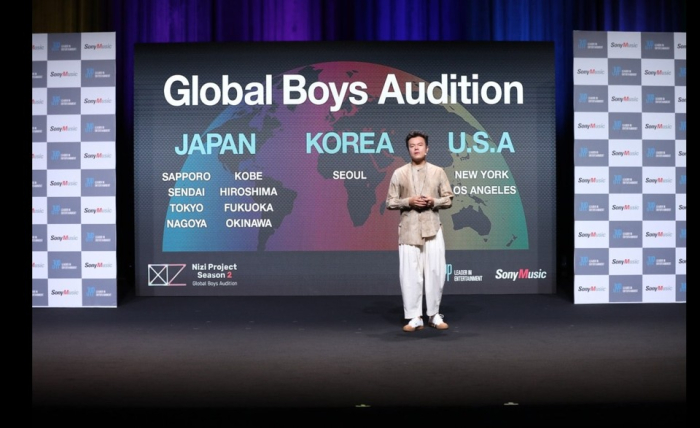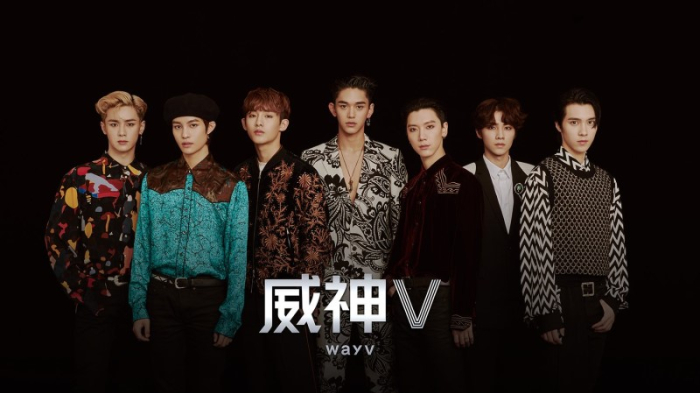Music & Entertainment
K-pop evolves far beyond Korean nationality and language
Major entertainment firms in Korea are now focusing on locally produced content as new growth engines
By Aug 09, 2021 (Gmt+09:00)
6
Min read
Most Read
LG Chem to sell water filter business to Glenwood PE for $692 million


KT&G eyes overseas M&A after rejecting activist fund's offer


Mirae Asset to be named Korea Post’s core real estate fund operator


StockX in merger talks with Naver’s online reseller Kream


Meritz backs half of ex-manager’s $210 mn hedge fund



South Korean music, entertainment and content firms are undergoing a major transformation in their business model. No longer is their discovery of new talent or production of music content solely conducted within the geographical boundaries of South Korea. Instead, the companies are launching a series of locally produced artists and entertainment content in different regions of the world.
The business model, in summary, has shifted from one that exports cultural products to a more evolved one that plants a Korean production system of culture and entertainment on local soil.
Japan’s popular girl group NiziU is the epitome of the new business model. NiziU released a new album last month in Japan with two of their songs hitting more than 100 million streams on the country’s Oricon chart, often referred to as Japan’s Billboard chart, becoming the first girl group to do so.
Every member of NiziU is of Japanese nationality, and they sing in Japanese. But NiziU was created and produced by a South Korean entertainment company, JYP Entertainment Inc., under its own label in 2020.
JYP Entertainment created NiziU through a global audition project called Nizi Project in partnership with Japan’s largest music label Sony Music. The two companies will run Nizi Project Season 2 later this year with an aim to create a global boy band.
“The new boy band will be active not only in Japan but in other parts of the world as well,” said Park Jin-young, the founder and executive producer of JYP Entertainment.

Another major music label SM Entertainment Co. is following suit in producing local artists trained by the Korean entertainment system. WayV, a boy group produced by the company as the Chinese unit of the boy band NCT, was ranked first on the iTunes album chart in more than 30 countries worldwide, the best performance among all boy bands created in the country. None of the seven members of WayV is Korean. They are from Mainland China, Hong Kong, Macau, Taiwan and Thailand.

SM Entertainment has also made another move recently to create the American unit of NCT, under the name of NCT Hollywood. The global audition to recruit the members of NCT Hollywood will be conducted this year in partnership with Metro-Goldwyn-Mayer (MGM), among the producers of the popular US televised singing competition series The Voice.
Experts note that SM Entertainment founder and executive producer Lee Soo-man had predicted this business model shift in a comment he made a decade ago.
“In the entertainment industry now, ‘made in Korea’ is no longer important. What’s more important is producing ‘made by Korea’ artists and content,” said Lee in 2011.

BTS agency HYBE Co. is also planning to launch a US-based K-pop boy band next year. All stages of the audition will be held in the US. HYBE said that the audition will be run in partnership with Universal Music Group of the US and will be broadcast globally.
It is still unclear whether SM Entertainment’s and HYBE’s new boy bands in the US will have members of Korean nationality. But entertainment industry experts expect that the vast majority of the members will be non-Koreans.
Pop culture experts have differing views on whether such groups, produced by Korean firms but without Korean members or songs in the Korean language, can still be included under the umbrella of K-pop. But entertainment companies say it’s clear that these new groups are part of the K-pop genre.
“NiziU is definitely a K-pop girl group,” said Park Jin-young in launching the Japan-based girl group.
SM Entertainment’s Lee Soo-man agrees that the recent move should be seen as an expansion of the K-pop genre. Earlier in his career, Lee had proposed a “three-stage theory in the development of K-pop.”
According to Lee, the first stage of K-pop is where the company produces music and albums within Korea, with Korean artists and launching them later in overseas markets. The company’s artists BoA and TVXQ fall into this category. The second stage is where non-Korean artists join as members or produce music in close partnership with overseas music labels. The artists EXO and JYP’s TWICE are examples of artists launched during the second stage.
The final stage, according to the SM Entertainment founder, is discovering local talent outside Korea and fostering them into professional artists in collaboration with or through a joint venture with a local music label. The company’s WayV and JYP Entertainment’s NiziU fall under this category.
“K-pop, despite a number of key successes from BTS, is still a minor genre in the overall global music industry. If our entertainment firms keep raising new talent in overseas markets and keep strengthening their presence in the English-dominated global market, K-pop will soon position itself as a mainstream genre,” said Korea Creative Content Agency’s chief researcher Song Yo-sep.
SIMILAR MOVES OUTSIDE THE MUSIC SEGMENT
Similar transformations are seen in the content market. South Korea’s largest drama maker Studio Dragon Corp. will be the first Korean producer to make an American drama series. The company will co-plan and co-produce The Big Door Prize, a 10-episode drama series, together with Apple TV+ and Skydance Media. Industry sources said each episode’s production cost will be around $45 million-$90 million. Studio Dragon said that its next goal is producing a total of 10 drama series locally in the US.
The studio behind the movie Parasite, CJ ENM Co. is also committed to producing about 10 movies locally in the US, including Endings, Beginnings launched last year.

“In producing the movie, Korean firms may face some cultural differences in the US. But such discrepancies are now seen as an attractive feature by movie viewers. Netflix’s Kingdom could grab the attention of international viewers due to a high degree of locality and Korean culture presented in the series,” said pop culture critic Jung Duk-hyun.
Digital content companies in Korea are following Netflix’s strategy of drawing the world’s major artists and content under its own platform. Naver Webtoon and its rival Kakao Webtoon are partnering with American and European artists in launching new webtoons. Sources said that Naver has 700,000 active webtoon artists on its platform, more than 10 times that of Kakao with 65,000.
“We have been extremely active in discovering and nurturing new artists through our global amateur webtoon artist recruitment platform Canvas,” said Naver Webtoon. Canvas is the company’s free self-publishing platform for amateur artists.
“Canvas helps us to create and extend the global webtoon ecosystem. We will continue to debut new stories that highlight local culture and sentiment,” added Naver Webtoon.
Write to Hee-kyung Kim at hkkim@hankyung.com
Daniel Cho edited this article.
More to Read
-
 Music & EntertainmentNo.1 K-pop goods maker Copan Global eyes digital expansion
Music & EntertainmentNo.1 K-pop goods maker Copan Global eyes digital expansionJul 06, 2021 (Gmt+09:00)
3 Min read -
 MarketsBTS label HYBE shares at highest close: Too late to chase it now?
MarketsBTS label HYBE shares at highest close: Too late to chase it now?Jun 22, 2021 (Gmt+09:00)
4 Min read -
 EntertainmentDearU strives to catch up with leading K-pop fan platform Weverse
EntertainmentDearU strives to catch up with leading K-pop fan platform WeverseJun 17, 2021 (Gmt+09:00)
3 Min read -
 EntertainmentK-pop fan engagement platform DearU eyes H2 listing
EntertainmentK-pop fan engagement platform DearU eyes H2 listingJun 14, 2021 (Gmt+09:00)
1 Min read -
 Korean music labelsEntertainment shares to soar in Q2 following BTS, Blackpink comeback
Korean music labelsEntertainment shares to soar in Q2 following BTS, Blackpink comebackApr 16, 2021 (Gmt+09:00)
3 Min read
Comment 0
LOG IN


